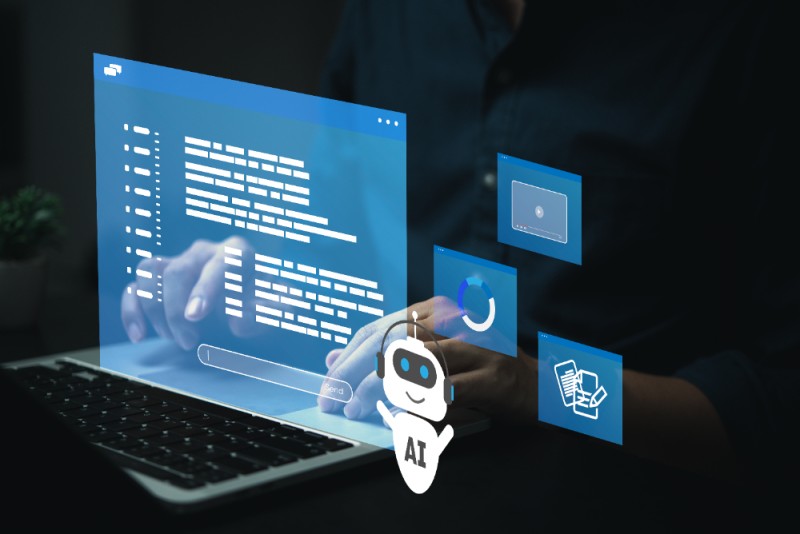Automation in Software Development: Benefits and Challenges for Engineers
Software development is being revolutionized by automation through AI-driven workflows, automated testing, and CI/CD pipelines, which simplify jobs, increase efficiency, and decrease errors. While engineers must adjust to new technology, it saves money, enhances teamwork, and speeds up deployment. By striking a balance between automation and human expertise, developers will be able to concentrate on creativity and problem-solving while utilizing intelligent automation to get the best possible outcomes.
Software development has never been a field focused on efficiency, optimization, and innovation. The last decade has seen automation as a driving force to change the paradigm of software design, testing, and deployment. Engineers increasingly use automated tools to manage mundane tasks, enhance accuracy, and speed up development cycles. But although automation is bringing great advantages, it also comes with new challenges that developers have to face to remain competitive in a changing market.
The Rise of Automation in Software Engineering
Automation of software development stems from the need for velocity and scale. As applications compound, manual process becomes slow and error-prone. Automation platforms and tools stepped in to simplify everything from code creation to delivery, enabling engineers to focus on higher-value and more strategic endeavors. Continuous Integration/Continuous Deployment (CI/CD) pipelines, automated tests, and infrastructure as code (IaC) have all played a part in transforming development workflows.
By automating software development tasks, companies can deliver higher-quality code, reduce human errors, and save time in debugging and deployment. This has allowed engineering teams to shift their focus away from mundane, repetitive work to more innovative and problem-solving aspects of software development. The increased application of AI-driven automation also improves efficiency by intelligently managing workflows, foreseeing potential issues, and reducing the cognitive load on developers.
Key Benefits of Automation in Software Development
Its overall greatest advantage resides in the massive boost in efficiency. Automated methods eliminate the roadblocks for hand interventions so developers get the work done quicker and more intelligently. Automation also enhances software reliability by establishing an assurance of each step's creation following pre-allocated standards in addition to sector best practices.
Automated testing, for example, has revolutionized quality assurance. Manual testing is slow and error-inclined, but automated testing frameworks allow engineers to execute thousands of test cases within minutes. Automation testing tools keep code continuously verified against potential bugs, making software more stable and resilient before it reaches production. With technologies like AI-based testing and continuous monitoring, software can now detect potential risks independently, allowing teams to take action on them in advance.
Apart from quality assurance, automation also simplifies deployment. Through CI/CD pipelines, engineers can push updates with ease, minimizing downtime and enhancing the overall user experience. Infrastructure as code (IaC) enables teams to run cloud environments programmatically, minimizing inconsistencies among development, testing, and production environments. It addresses the "it works on my machine" issue that has been plaguing software development teams for so long.
Furthermore, automation facilitates more team collaboration by engineers. Developers can focus on delivering quality code while relying on automation to handle builds, testing, and deployment. This translates to quicker delivery and more integrated development workflows. Automation enhances team visibility as well with automated logs and analysis, enabling managers to see performance, spot bottlenecks, and optimize workflows.
The second advantage of automation is cost savings. While the upfront expense of automation tools and infrastructure can be high, long-term advantages are significant. Through automation, the need for human labor is lessened, errors are minimized, and development cycles are shortened, and businesses are able to cut down on operational expenses and maximize the use of resources. Businesses that embrace automation not only increase productivity but also enhance competitiveness in a fast digital economy.
The Challenges Engineers Face with Automation
While automation is beneficial in numerous aspects, it also has challenges to be addressed by software developers. One of the main challenges is making and maintaining automated systems a lot of complicated. Installation and maintenance include CI/CD pipelines, auto-test setup, and infrastructure as code, whose skill and experience levels are high. Auto-processes deployed in an undesigning manner will advance new issues instead of solving existing ones.
The second issue is the initial investment in automation. It is time and money to develop automated processes, and companies must weigh the cost of implementation against future returns. Engineers must also continuously update automation systems to keep up with evolving technologies and development methods. When new software testing tools emerge, software teams must invest in continuous training and skills development to keep up.
There is also the issue of too much reliance on automation. While automation is intended to boost productivity, it is not a substitute for human intuition and problem-solving abilities. Engineers must balance automation and manual observation to prevent automated processes from overlooking critical problems or introducing unexpected errors. Automated systems are built on fixed rules and patterns, which at times cannot compensate for depth of decision-making available from a human developer.
Security is another aspect engineers must account for. Automated deployment pipelines, for instance, need robust security controls to prevent vulnerabilities from making it into production environments. Automated security scan tools help detect possible attacks, yet engineers must still be actively involved in maintaining best practices for security.
Also, greater reliance upon automation makes an individual susceptible to cyber attacks in that automated scripts, APIs, and infrastructure are potential vulnerable endpoints for malicious abuse. Secure coding practices, systematic audits, and multi-factor authentication mechanisms are thus required to obviate such threats.
The Role of Engineers in an Automated Development Landscape
With automation taking center stage in the software sector, engineers will have to adapt by learning new skills. Traditional coding skills are not obsolete yet, but engineers will also have to learn automation tools, scripting languages, and cloud computing. Understanding DevOps practices, CI/CD pipelines, and infrastructure as code will be crucial for software engineers who want to stay competitive in the marketplace.
Second, there needs to be a learning culture adopted by the engineers. Automation is an emerging field, and new tools and models are consistently being created. Keeping up to date with what's happening within the industry and familiar with the latest automation methodologies will be fundamental to career progress. Engineers with the ability to integrate AI-powered automation into software development processes will be at the forefront of innovation.
For those looking to enhance their careers in automation-driven development environments, exploring opportunities as a software developer can provide access to exciting and innovative projects. Companies are actively seeking engineers who can leverage automation to improve development efficiency and drive business growth.
The Future of Automation in Software Development
The future of software development is inextricably tied to automation. As artificial intelligence and machine learning become more integrated into development processes, automation will evolve from predetermined workflows to more adaptive, intelligent automation systems. AI-driven code generation, predictive analytics for testing, and self-healing infrastructure are just a few of the advancements that will continue to transform the industry.
Yet automation is less a matter of replacing developers, but more a matter of empowering them. Developers who can take advantage of automation will be freed to focus on innovation, creativity, and solving complex problems rather than being bogged down in repetitive tasks. As companies embrace automation, the role of the software engineer will remain increasingly dynamic and powerful.
Conclusion
Automation has transformed software development, providing unprecedented efficiency, accuracy, and scalability. Although it provides immense benefits, it also poses challenges that engineers need to overcome, ranging from implementation complexity to security concerns. Through constant adjustment to emerging automation technologies and best practices, software engineers can excel in a changing industry.
Lastly, the success lies in the equilibrium between automation and human skill. Those engineers who are able to develop a strong grasp of automation along with major problem-solving skills will be the ones to set the future of software development. If utilized in the right manner, automation is not against engineers but is a great tool that enhances the ability of engineers to create, innovate, and excel in the ever-changing world of technology.

Subscribe & get all related Blog notification.





Post your comment